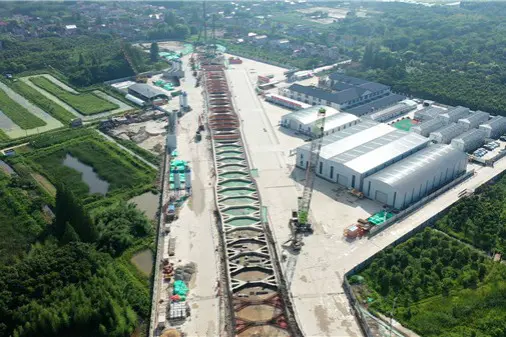05:20

For some, having children is a matter of choice, but for others, not so much, and the desire to become parents might not be fulfilled due to infertility issues.
In the past decades, China has seen its infertility population skyrocket to over 50 million. About one in six people of childbearing age face this problem.
While it is still a rarely discussed topic in China, a recent survey showed that nearly half of infertile couples visiting doctors are gradually accepting assisted reproductive treatments, which in time could play a part in boosting the country's population.
Mrs and Mr N, as they would like to be known, have put their hopes on a test-tube baby after visiting five hospitals in Beijing. They didn't realize that so many others were trying to overcome infertility with in-vitro fertilization until they get to know about it themselves.
"It was scary because you didn't know who had done it before or whether it could cause physical damage. And if it would involve a lot of shots, drugs, or tests? There is a lot actually, but it wasn't as scary as we thought," said Mrs L, who just received her first egg retrieval surgery.
Experts at Peking University Third Hospital said they've witnessed China's assisted reproductive technologies leapfrog to an international advanced level in terms of treatment types, safety, and effectiveness. In the late 80s, the first in-vitro fertilized (IVF) baby in the Chinese mainland was born in this hospital, 10 years after the world's first IVF baby was born in England.
"How to block some of the diseases from the embryo, and free mothers from pain of abortion and induced labor, will be our main objective in the next 5 to 10 years," said Li Rong, director of the hospital's Reproductive Medical Center and Ob-Gyn Department.
Li pointed out that assisted reproduction has been working more closely with obstetrics in recent years to give pregnant infertile patients better obstetric care, as well as a good outcome for both mother and child. As for technology, she said they particularly hope to break through issues with mitochondrial genetic diseases and some rare diseases that are still problematic.
But the fast-growing sector is not yet a magic pill to burgeoning demand. Data suggests the live birth rate for people using assisted reproduction technology in China is around 30 to 45 percent. Given the cost of a single treatment, experts say it takes an average of 50,000 to 100,000 yuan to give birth to a live baby. That is about $8,000 to $15,000, a cost that is mostly not covered by social medical insurance.
For those who want advanced treatment or high-end service, there aren't many options. Some patients eventually see years of struggling back and forth pay off, like the L couple, who asked for anonymity. The couple called their baby a miracle catalyzed by money, knowledge, technology, strong bodies, plus a bit of luck.
Mrs L thought it's still a matter of limited resources. "If you want to get better medical services, you may have to pay extra for travel and accommodation. If you want it faster, you may have to spend more money for priority treatment," she said. And she also noted a notable asymmetry of information, as people are not very willing to talk about it with each other.
However, some who aren't as fortunate still have to travel across the country, or even overseas, in search of a treatment they hope can eventually work. Experts say increasing anxiety about infertility has led to a black market of methods that are illegal in China, such as surrogacy, egg deals, fetal sex diagnosis.
With more debate over whether to lift control or crackdown on this market, Chinese policymakers and political advisors are rethinking laws and regulations on assisted reproduction.
Xu Congjian, a member of the Chinese People's Political Consultative Conference (CPPCC), also president of the Obstetrics and Gynecology Hospital of Fudan University, said government policies should put forward according to different needs and stages of society. This year, Xu proposed to promote reproductive social insurance and support, which he said is a great concern for many people at present.
But Xu also highlighted that while respecting some people's desire to have children, it is also necessary to prevent things that would lead to negative consequences in the future, especially human rights issues.
"You must think about the rules before you make them and have administrative enforcement in place otherwise, policy loosening will only lead to loopholes," said the CPPCC member.
Another imperative issue, experts say, is teaching the public how to view childbearing appropriately, which some patients also agree with.
Mr N said they should have tried to have children earlier, so it wouldn't be so hard on his wife. "The popularization of knowledge is poor. Many don't even know they have fertility disorders and rarely get examined," said Mrs N.
The couple said while couples going all out for a child will try any means necessary, they hope more young couples can have an easier childbearing experience in the future.
 简体中文
简体中文





















